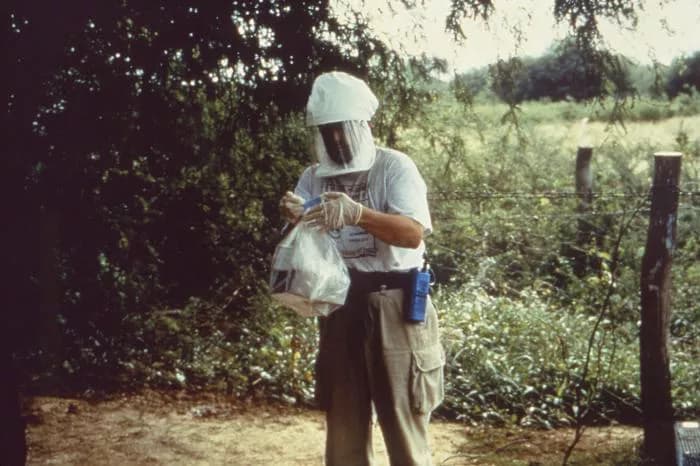
New Way To Treat Nerve Damage Caused By Insecticides And Chemical Weapons
New research has uncovered a potential new therapy for the currently untreatable delayed neuropathy caused by acute exposure to insecticides or chemical weapons that attack the nervous system. The study, published in the open access journal Cell Discovery, identifies a new biological mechanism responsible for the neuropathy, as well as the drugs to treat it.
Organophosphates (OP) -- the chemical compound found in insecticides, herbicides, and nerve agents such as sarin -- were found to damage sensory neurons by activating a channel, called TRPA1, in the neuron cell membrane. Activation of TRPA1 caused hyperactivation of the neuron, which is known to cause neuronal damage and symptoms including burning pains on the skin, loss of muscle control and paralysis. Mice that were genetically engineered not to express TRPA1 in neuronal cells did not suffer the effects of OP poisoning that were seen in normal mice and their nerves showed no signs of damage.
Dr Zhaobing Gao, lead author from the Shanghai Institute of Materia Medica, Chinese Academy of Sciences, said: "In our study we have begun to unravel the biological mechanism which causes organophosphate-induced delayed neuropathy. Using our expertise in drug discovery we were also able to screen a Federal Drugs Administration approved drug library of around 2,000 drugs and identify two potent drugs, duloxetine and ketotifen, which alleviated the signs of neuropathy in an animal model."
Dr Gao added: "Our study provides compelling evidence that TRPA1 mediates OP-induced neuropathy and that TRPA1 can be targeted effectively with existing drugs that are approved by the Federal Drugs Administration. Further research will need to be conducted to assess the applicability of our findings to humans."
TRPA1 is a channel that mediates the movement of calcium ions into neurons. The movement of calcium ions into the neuron is an important part of the process that leads to activation of a neuron and the physiological effects such as smell, taste, vision and temperature. TRPA1 is normally activated in response to cold temperatures of environmental stimuli and is associated with producing a cold sensation, coughing, itching and pain.
Using an OP commonly found in insecticides, the authors found that the OP activated TRPA1, causing an influx of calcium ions into the neuron. They also showed that neurons stimulated by the OP produced a current and showed signs of electrical activation commonly seen in active neurons.
Although acute OP poisoning can be fatal, the initial symptoms are treatable. However, delayed neuropathy often occurs one to five weeks after exposure and at this stage no effective treatments are available.
This study is limited by the fact that all experiments were carried out in vitro or in animal models. However, the findings reveal a biological mechanism by which OPs interact with sensory neurons and present a novel explanation for how exposure to OPs leads to symptoms of neuropathy and nerve damage.
Related Articles
Test Your Knowledge
Asked by users
Related Centers
Related Specialties
Related Physicians
Related Procedures
Related Resources
Join DoveHubs
and connect with fellow professionals

0 Comments
Please log in to post a comment.